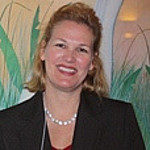Session Description
What does active learning look like online? How can we provide it while addressing the needs and preferences of learners in a flexible learning environment? This presentation provides the definition, purpose, and examples of active learning within the Universal Design for Learning (UDL) framework from setting the stage, selecting instructional strategies and technologies, student selection of learner strategies, and designing feedback loops. A typology of instructional strategies and their examples are addressed to provide variety (i.e., activity-centered, content-centered, experience-centered, and learner-centered activity. Active learning aligns with the UDL framework when lessons provide multimodal representation and various pathways for action, expression, and engagement. CAST’s checkpoints for UDL will be woven throughout, as well as active learning and UDL’s intersection with the Online Community of Inquiry Framework (i.e., social, cognitive, and teaching presences). For active learning, students need the following in a UDL environment:
- Preparation for learning events,
- Situated learning environments for near transfer,
- Planned multimodal interactions that are cognitively challenging,
- Alternative and formative assessments,
- Cognitive strategies to build comprehension and increase retention,
- Feedback loops, and
- Metacognitive strategies to monitor their learning.
Presenter(s)
Session Type
20-Minute Session
Audience
Intermediate, Advanced
A recording of this presentation is available.
Click the button to the right to access the session archive.

 Sandra Annette Rogers (aka Teacherrogers) has taught in a variety of K-16 educational settings from a rural hut in Honduras as a Peace Corps Volunteer to the University of California-Los Angeles Lab School as a Demonstration Teacher to elearning worldwide. She has taught bilingual elementary education, developmental reading, Spanish, and English for speakers of other languages (ESOL). She holds a K-12 bilingual (Spanish/English) teaching certificate from the California Commission on Teaching. She is a Quality Matters certified peer reviewer for online courses. She is also a Google Certified Educator. She is a content developer, instructional designer, researcher, and trainer. She has a doctorate in instructional design and a master’s in teaching ESOL. Her research interests include gaming, second language acquisition, and distance education. She currently serves as an instructional designer for UCLA’s Online Teaching and Learning Initiative. She will present on her recent publication, Curation of your online persona through self-care and responsible citizenship: Participatory digital citizenship for secondary education (2020).
Sandra Annette Rogers (aka Teacherrogers) has taught in a variety of K-16 educational settings from a rural hut in Honduras as a Peace Corps Volunteer to the University of California-Los Angeles Lab School as a Demonstration Teacher to elearning worldwide. She has taught bilingual elementary education, developmental reading, Spanish, and English for speakers of other languages (ESOL). She holds a K-12 bilingual (Spanish/English) teaching certificate from the California Commission on Teaching. She is a Quality Matters certified peer reviewer for online courses. She is also a Google Certified Educator. She is a content developer, instructional designer, researcher, and trainer. She has a doctorate in instructional design and a master’s in teaching ESOL. Her research interests include gaming, second language acquisition, and distance education. She currently serves as an instructional designer for UCLA’s Online Teaching and Learning Initiative. She will present on her recent publication, Curation of your online persona through self-care and responsible citizenship: Participatory digital citizenship for secondary education (2020).